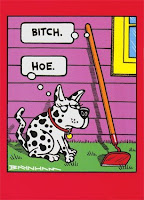Why Sexist Language Matters
 Gendered words and phrases like "you guys" may seem small compared to issues like violence against women, but changing our language is an easy way to begin overcoming gender inequality.
Gendered words and phrases like "you guys" may seem small compared to issues like violence against women, but changing our language is an easy way to begin overcoming gender inequality.
For years I've been teaching a sociology course at the University of North Carolina on gender inequality. I cover such topics as the wage gap, the "second shift" (of housework and childcare) that heterosexual women often do in the home, the "third shift" (women's responsibility for intimate relationships with men), compulsory heterosexuality, the equation of women's worth with physical attractiveness, the sexualizing of women in the media, lack of reproductive rights for women (especially poor women), sexual harassment and men's violence against women.
What I've left off the list is the issue that both women and men in my classes have the most trouble understanding -- or, as I see it, share a strong unwillingness to understand -- sexist language.
I'm not referring to such words as "bitch," "whore" and "slut." What I focus on instead are words that students consider just fine: male (so-called) generics.
Read entire article at AlterNet (see link below) and on the second page there are a number of reader comments that both agree and disagree with the premise of the article which was originally printed in the Center Line, a newsletter of the Orange County Rape Crisis Center.
LINK: AlterNet - Why Sexist Language Matters
LINK: YouAll










1 comment:
Students understand, perhaps better than anyone, how futile it can be trying to control people's speech for the betterment of society. No matter how many positive terms we try to come up with for "crippled", it really doesn't work. "Differently abled" just becomes another pejorative.
The young can sense artifice and political correctness from a mile away, and bend the meanings of words as if they were plasticine.
I heard some high school students talk about a "special" student a few years ago. "Special with an R" was the term they used.
Cruel, but enlightening.
Post a Comment